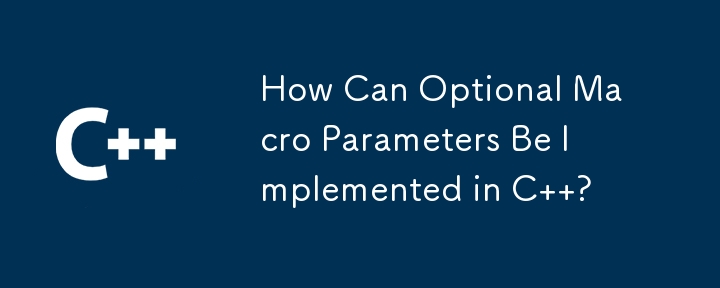
带有 C 预处理器的可选宏
在 C 中,可选宏参数可以增强代码灵活性。实现这一点的方法是通过重载式宏。让我们探讨一下这种技术的工作原理。
一种方法两次使用宏参数列表。首先,它构造一个辅助宏的名称。其次,它将参数传递给适当的辅助宏。采用标准技巧来确定宏参数的数量。
考虑以下代码:
enum
{
plain = 0,
bold = 1,
italic = 2
};
void PrintString(const char* message, int size, int style)
{
}
#define PRINT_STRING_1_ARGS(message) PrintString(message, 0, 0)
#define PRINT_STRING_2_ARGS(message, size) PrintString(message, size, 0)
#define PRINT_STRING_3_ARGS(message, size, style) PrintString(message, size, style)
#define GET_4TH_ARG(arg1, arg2, arg3, arg4, ...) arg4
#define PRINT_STRING_MACRO_CHOOSER(...) \
GET_4TH_ARG(__VA_ARGS__, PRINT_STRING_3_ARGS, \
PRINT_STRING_2_ARGS, PRINT_STRING_1_ARGS, )
#define PRINT_STRING(...) PRINT_STRING_MACRO_CHOOSER(__VA_ARGS__)(__VA_ARGS__)
int main(int argc, char * const argv[])
{
PRINT_STRING("Hello, World!");
PRINT_STRING("Hello, World!", 18);
PRINT_STRING("Hello, World!", 18, bold);
return 0;
}这种方法简化了调用者的宏调用,同时可能会给宏编写者带来复杂性。
以上是如何在 C 中实现可选宏参数?的详细内容。更多信息请关注PHP中文网其他相关文章!




